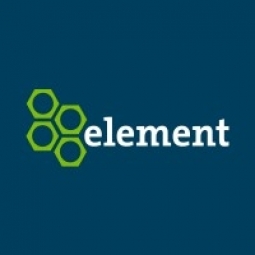Customer Company Size
Mid-size Company
Region
- America
Country
- Canada
Product
- Accident Service
- Financing Service
- Fuel Service
- Maintenance Service
- Telematics Service
- Title, Licensing & Registration Service
Tech Stack
- Telematics
Implementation Scale
- Enterprise-wide Deployment
Impact Metrics
- Cost Savings
- Productivity Improvements
Applicable Functions
- Logistics & Transportation
Use Cases
- Fleet Management
Services
- System Integration
About The Customer
The customer is a Canadian-based service provider operating in the manufacturing industry. They have a fleet of 183 service vans that they use for their operations. The customer was already utilizing multiple alternative fuel options such as propane conversion along with gas service vans. They were also maximizing fuel discounts but were still seeking ways to further improve fuel efficiency and drive down costs. The customer was open to strategic consulting to identify more cost-saving opportunities.
The Challenge
A Canadian-based service provider was seeking a comprehensive solution to improve its fuel efficiency and drive down costs in their 183-service van fleet. The customer was utilizing multiple alternative fuel options such as propane conversion along with gas service vans. Despite maximizing fuel discounts, the customer needed to identify more cost-saving opportunities. The challenge was to find a solution that would not only reduce fuel consumption but also provide a substantial savings opportunity for the customer.
The Solution
Element’s strategic consultants conducted a review of the customer’s overall fleet spend taking into account the full lifecycle cost of the vehicle. Looking at the spend, along with the propane conversions, the team built a business case to switch to a new vehicle, the Transit 250. Although the lifecycle cost showcased the Transit as having a higher initial cap cost, the overall benefits exceeded the current offering, generating a substantial savings opportunity for the customer. The customer, in partnership with Element, created a 3-year plan to change the entire fleet over to the Ford Transit 250. Element studied alternative fuel technologies and identified a further opportunity to remove the propane conversions and allocate the investment towards the Transit 250 diesel when it became available.
Operational Impact
Quantitative Benefit

Case Study missing?
Start adding your own!
Register with your work email and create a new case study profile for your business.
Related Case Studies.

Case Study
IoT-based Fleet Intelligence Innovation
Speed to market is precious for DRVR, a rapidly growing start-up company. With a business model dependent on reliable mobile data, managers were spending their lives trying to negotiate data roaming deals with mobile network operators in different countries. And, even then, service quality was a constant concern.

Case Study
Vehicle Fleet Analytics
Organizations frequently implement a maintenance strategy for their fleets of vehicles using a combination of time and usage based maintenance schedules. While effective as a whole, time and usage based schedules do not take into account driving patterns, environmental factors, and sensors currently deployed within the vehicle measuring crank voltage, ignition voltage, and acceleration, all of which have a significant influence on the overall health of the vehicle.In a typical fleet, a large percentage of road calls are related to electrical failure, with battery failure being a common cause. Battery failures result in unmet service agreement levels and costly re-adjustment of scheduled to provide replacement vehicles. To reduce the impact of unplanned maintenance, the transportation logistics company was interested in a trial of C3 Vehicle Fleet Analytics.

Case Study
Zonar Takes the Wheel with a M2M Solution
Zonar’s fleet management solutions collect, report and analyze data before, during and after a vehicle’s trip. The company needed Machine-to-Machine (M2M) connectivity to enable communication between in-vehicle devices and back-end systems. To deliver high volumes of potentially sensitive information from and to moving vehicles – and keep pace with its rapid business growth – Zonar wanted a highly secure solution that it could easily manage and that had the required national and global reach.










